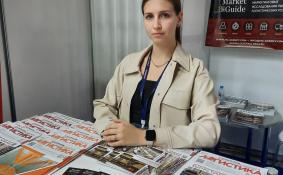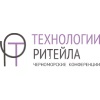
научно-практический
журнал

Новости редакции
28 ноября в Москве в отеле «Золотое кольцо» прошел XI форум «Склады России: итоги года!».
18 ноября Президент Российского Союза химиков Виктор Иванов лично вручил директору «Агентства Маркет Гайд» и издателю журнала «ЛОГИСТИКА» Юлии Кисловой сертификат, подтверждающий членство агентства в Российском Союзе химиков.
Дорогие читатели! Десятый номер журнала «Логистика» открывается большим материалом, посвященным итогам Делового форума БРИКС, прошедшем 18 октября 2024 г. в Москве. Директор ООО «Агентство Маркет Гайд» и издатель журнала «ЛОГИСТИКА» Юлия Кислова побывала на мероприятии и подготовила статью, где особое внимание уделила международной торговле и логистической связанности стран объединения. Подробности – в номере.
Статья недели:

ФОТО НЕДЕЛИ
ЦИТАТЫ
События в российской логистике
Investors still find value in real estate as returns hit cyclical low
CHICAGO, LONDON, SINGAPORE
As global political uncertainty continues to dominate headlines in 2017, the amount of capital seeking opportunities in real estate remains relatively unhindered as we hit the half year mark.
Global transaction volumes came in at US$150 billion for Q2, down just two percent year-on-year, but still 18 percent above the 10-year second quarter average. The results, coupled with the first three months of the year bring H1 2017 volumes back in line with the first half of 2016 at US$289 billion.
While results from the recent election in France have helped assuage fears over the future of the European Union, JLL’s David Green-Morgan says geopolitics will continue to play a major role in market sentiment and activity for the rest of the year.
“Even though we saw a positive outcome in France, the continued Brexit process, coupled with increasingly tense U.S. relations with global allies has given investors cause for concern,” the Global Capital Markets Director explains. “Meanwhile, both the Federal Reserve and the ECB have indicated a potential move towards policy normalization and tighter monetary policy which will undoubtedly impact investment decisions.”
“Yet, these challenges don’t appear to be impacting the appetite for global commercial real estate – even as yields hit their cyclical low,” he says. “We expect to see growth in both rents and capital values for the rest of the year and, as a result, we’re maintaining that full year transactional volumes will be more or less in line with the US$650 billion we recorded in 2016.”
Regional Overview
Asia Pacific
After a muted start to the year, Asia Pacific bounced back in Q2 to record volumes of US$29 billion, up four percent on Q1 and bringing the first half two percent higher than H1 2016. The standout, China saw robust investment of US$8.1 billion throughout the quarter, boosting first half volumes by 24 percent compared to H1 2016. In Japan, a strong Q1 helped H1 volumes to be 10 percent up on 2016 despite Q2 volumes rising by just one percent. Conversely, while also up 10 percent on H1 2016, Singapore volumes benefitted from US$3.7 billion of investment during the second quarter. After a disappointing Q1, Australia was 92 percent up q-o-q but still down by 10 percent on the first half of last year.
EMEA
A strong second quarter saw European investment volumes hit US$57 billion, up five percent on H1 2016. Leading the region, Germany had its second biggest H1 on record, coming in 38 percent higher than the first half of last year while the Netherlands also saw volumes jump by 48 percent to record their third highest H1 ever, at US$6.5 billion. First half gains in Russia (37%), Sweden (28%), and Spain (25%) were balanced by dips in France (-22%), Finland (-25%), and Poland (-20%) but UK markets continued to shrug off political concerns, rising by 10 percent in local currency terms.
The Americas
The only region to come in lower than H1 2016, investment activity in the Americas hit US$64 billion in the second quarter, bringing first half volumes down by six percent to US$122 billion. While the United States drove the decline with first half volumes down by 10 percent to US$110 billion, all other markets in the region saw first half increases over H1 2016.










